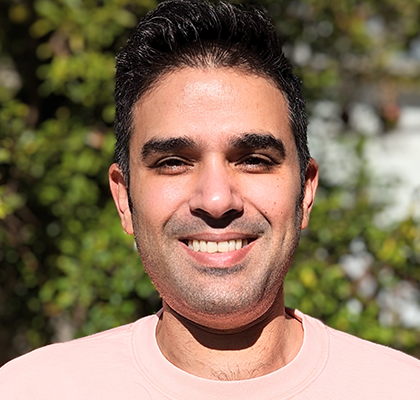From the Help Desk to Financial Engineering
December 2021
CQF Alumni Story: Itay Dafna, Software Engineer, Bloomberg

As an undergraduate student, I majored in economics and then worked for KPMG, doing corporate finance. After a few years, I went back to school for a master’s degree in management and subsequently joined Bloomberg, where I have been working ever since.
I started on the help desk and, as I became more confident in the financial domain, was able to tackle more and more complex inquiries from the company’s clients. This role really helped me ramp up my financial knowledge over the next few years, and I particularly enjoyed working in the area of derivatives. I initially focused on FX but expanded to handling all other asset classes over time. For example, clients might ask difficult questions about the Black-Scholes asset pricing model, where they were trying to reconcile the values produced on the Bloomberg terminal with their own, internal implementation.
It was at this point of my career that I started getting deeply interested in quantitative finance; I bought many books and studied on my own. In fact, when I started the CQF, I had already read “Paul Wilmott Introduces Quantitative Finance,” two books by Mark Joshi, and a number of other books that were used in the program.
I then had the opportunity to spend a year in the financial engineering group at Bloomberg, where I continued to work with derivatives and valuations. We would take client portfolios and calculate their market value, Greeks, and various risk assessments such as VaR, and attribute them to changes in the underlying market data. The types of portfolios ranged from monolithic, single-asset products like interest rate swaps, to multi-asset portfolios combining inflation, credit, and exotics.
To start with, it's geared towards people who are working full-time in quant-type roles and are not looking to leave for a full-time degree program.
Most of my colleagues had master’s or doctorate degrees in quantitative finance, mathematical finance, or physics. While I could definitely do the job as a self-taught practitioner, I wanted to complete a more rigorous formal education in the field. So, I looked at many different programs, but the CQF was the only one that ticked all the boxes for me. To start with, it's geared towards people who are working full-time in quant-type roles and are not looking to leave for a full-time degree program.
While I was thinking it over, I had the chance to meet Randeep Gug at a CQF event; he was very positive and charismatic, and he shared a good sense of what the program was like. It had been nearly a decade since I had touched anything to do with calculus, but he reassured our class that we could pull it off. I also really liked the curriculum; it included a new machine learning module, and I wound up doing my final project on that. All of the factors stacked up in my favor, so I enrolled and received support from Bloomberg, as this type of education was very relevant for my role there.
The CQF is clearly designed to develop a thorough understanding and the skills required by practitioners. It does so in the most flexible, yet intensive, way possible.
The lectures were excellent, the platform worked very well, and there were many opportunities to engage in hands-on learning through workshops and the final project – not to mention the broad array of lectures and tutorials. The CQF is clearly designed to develop a thorough understanding and the skills required by practitioners. It does so in the most flexible, yet intensive, way possible.
Over the course of the program, I encountered many topics that enhanced my view of the markets – like stochastic volatility models and their derivations. I also learned a lot about risk-related models like VaR – topics I had not previously delved into on my own – at least not formally.
The CQF is a unique program, and I have been following its evolution since I graduated. Having access to all of the new material helps alumni keep in touch with the community, in addition to staying informed about emerging themes in quant finance.
Since taking the CQF, I finished my work with Bloomberg’s financial engineering group and set up a small team in London that deals with quantitative analytics and serves as an umbrella for certain services we provide. Essentially, if a client is looking to evaluate some APIs pertaining to derivatives valuation, we have technical discussions with them, determine their requirements, and build a proof-of-concept application that meets those requirements using our APIs. Most recently, I relocated to California to help Bloomberg develop quant products.
If you are excited by how the fields of quant finance and data science are evolving, I’d highly recommend it.
All of my projects require a knowledge of financial math, programming, and the products and instruments involved; the CQF provides a great foundation in each of these domains. If you are excited by how the fields of quant finance and data science are evolving, I’d highly recommend it.
To find out how you could transform your career with the CQF program, please download a brochure or join the next online information session to hear more and ask questions to the CQF Program Director.




